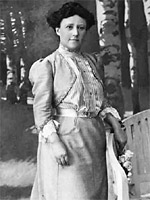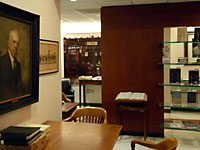The DeWitt Wallace Institute of Psychiatry is an interdisciplinary research unit in the Department of Psychiatry of the Joan and Sanford I Weill Medical College of Cornell University and New York Presbyterian Hospital.
Its mission is to support, carry out, and advise scholarship in a broad range of issues relevant to the present day theory and practice of psychiatry. Since its inception in 1958, the Institute has sought to use in-depth studies of the past to enhance understanding of the many complex matters that surround contemporary thinking and practice regarding mental health and illness. Over the last decades, Institute faculty have made critical contributions to debates surrounding matters like de-institutionalization, the history of the mind-brain problem, stereotyping, the scientific status of psychoanalysis, and the conceptual origins of different forms of mental illness.
Directed since 1996 by the scholar and psychiatrist Dr. George Makari, the Institute has branched out beyond history to foster studies at the interface of the “psy” sciences and the humanities, including explorations of the arts, medical ethics, and mental health policy. Thanks to Dr. Megan Wolff, the Institute has taken up the responsibility to create fact sheets to help inform public debate on the many pressing mental health issues that face us today, from the relationship of psychiatric illness to homelessness and gun violence, to the opiate crisis and the incarceration of the mentally ill.
 |
 |
 |
| Hermine Hug-Hellmuth (1871-1924) (From the Jelliffe lantern slide collection, Oskar Diethelm Library) |
 |
All of these scholarly efforts are deeply enriched by the holdings of the Oskar Diethelm Library, the library of record for American psychiatry, and one of the greatest such collections in the world. The collection was initiated in 1936 by Dr. Oskar Diethelm, who devoted himself to collecting rare books, doctoral theses, and manuscripts from overseas. After decades of growth, the library is now under the professional stewardship of Nicole Topich, M.L.I.S. Its 35,000 volumes in Latin, English, German, French and more, commence with incunabula on witches and humours from the 15th century and end with yesterday’s discovery on neurotransmitters. In addition to its unsurpassed collection of printed matter, the library is the repository of manuscript collections from critical individuals and numerous organizations. We are honored to host researchers from near and far who seek to extract the innumerable untold stories and lessons that lie in this treasure trove.
The Institute hosts the Richardson History of Psychiatry Research Seminar, the longest running colloquium of its type in the United States. It convenes working groups that bring together researchers in specific domains, such as the impact of psychiatry on society, a speaker series on Mental Health Policy, and various educational activities for students. With an open atmosphere that draws a mix of psychiatrists, psychologists, psychoanalysts, historians, ethicists, literary critics, and others, the Institute hopes to bridge studies of the past with science of the future, and connect the domains of science and the humanities, a necessity if our understanding of ourselves is to encompass the overwhelming mix of genes, neurons, brains, minds, selves, families, and societies.
History of the Institute



